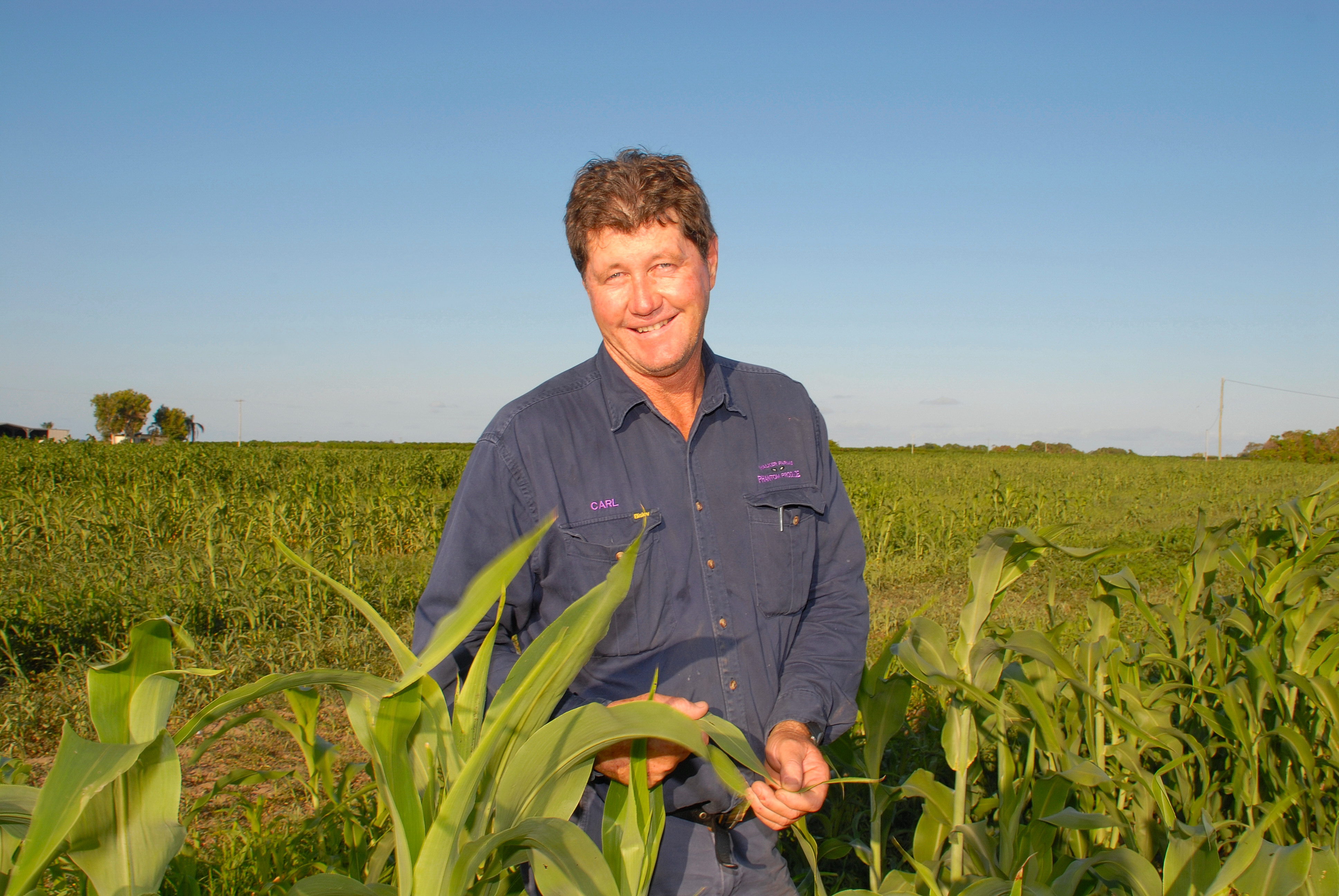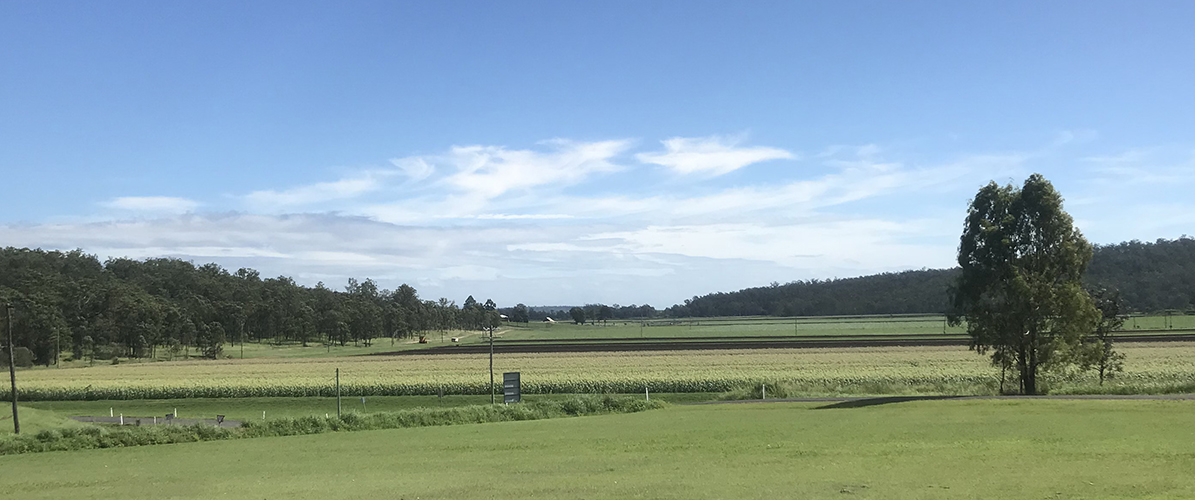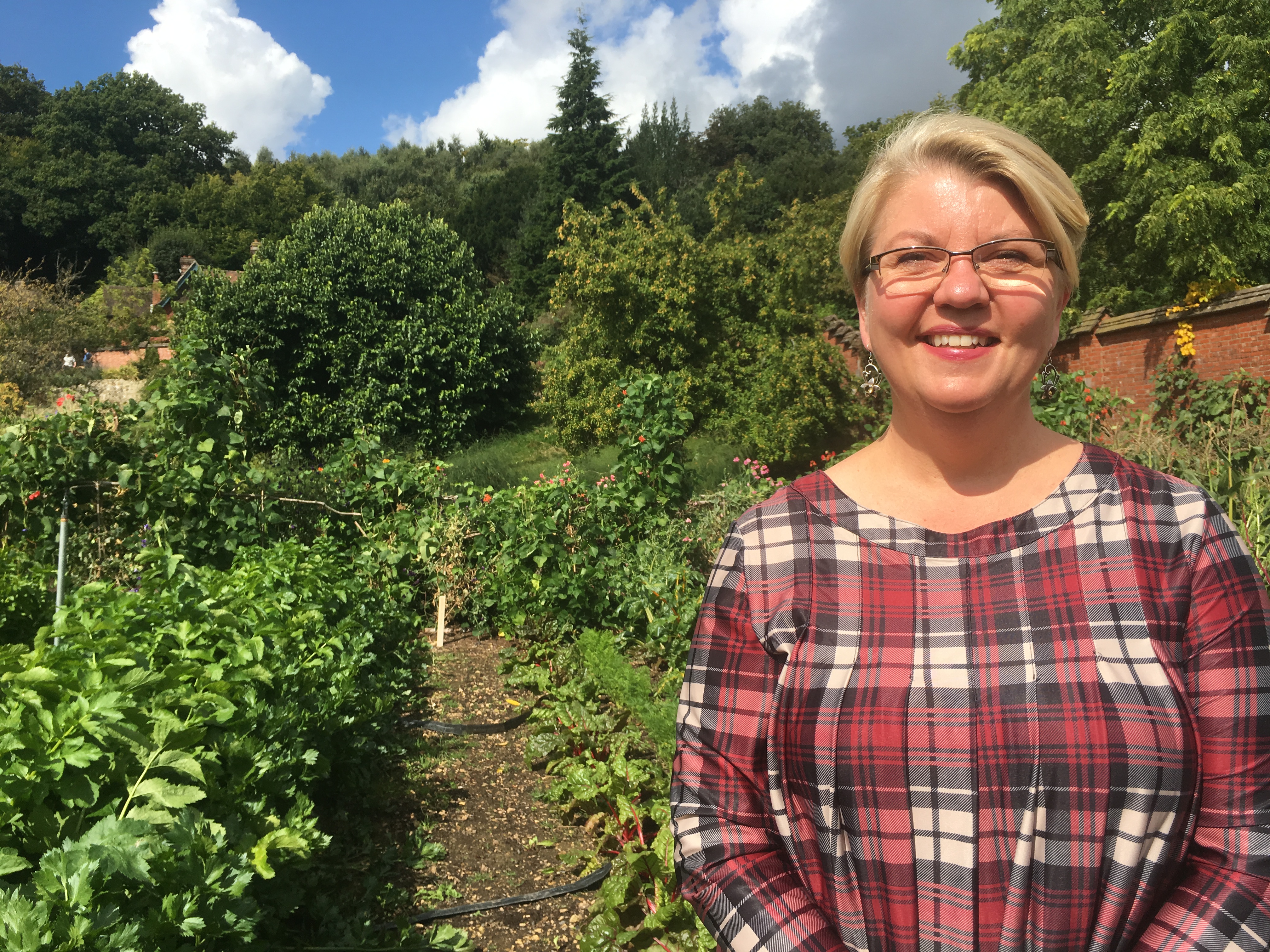
Carl Walker: Driving a community forward into a brighter future
14 March 2018
EnviroVeg helping Queensland growers adopt sustainable practices
16 March 2018Dr Hazel MacTavish-West has dedicated over 25 years to food and plant science. Following an 11-year stint in the United Kingdom as an industry consultant, Hazel returned to Australia in 2010 and established her business MacTavish West P/L in Hobart. In 2017, she was awarded a Churchill Fellowship to review approaches to food innovation. Hazel spoke to Vegetables Australia about her work and what the Fellowship will offer.
Fast facts
Name: Hazel MacTavish-West
Location: South Hobart, TAS
Works: MacTavish West P/L
Role: VegDoctor, 2017 Churchill Fellow, Food Product Creator, Entrepreneur, Communicator
There are many reasons why innovation in the Australian vegetable industry is vital.
It is essential to boost on-farm productivity and potential profitability, as well as increase vegetable consumption and use more of the crop. There are endless opportunities to enhance the value that consumers perceive vegetables to have and make them more attractive. Also, potentially, to utilise more of the crop, and thus decrease the amount of food wasted.
Dr Hazel MacTavish-West – a Tasmanian-based plant and food scientist with almost two decades’ of experience as a consultant working with primary producers, food manufacturers, retailers and consumers – recognises the need for innovation and the importance of value-added vegetable products.
Her business, MacTavish West, takes a scientific approach to commercial problems, combining specialised expertise around food and plant chemistry with a good understanding of the commercial reality of developing and launching new food products. Just a few recent examples include assisting Tasmanian-based businesses like Houston’s Farm to create new leafy summer salad kits, and the Daly family to turn outgrade potatoes into vodka and potato salad (all products available nationally).
Hazel has previously undertaken major programs for the vegetable industry such as establishing Veggycation®, a levy-funded website which provides access to FSANZ pre-approved and accurate information on the nutritional and health benefits of vegetables (veggycation.com.au). This resource is aimed at consumers, teachers and growers.
Most recently, Hazel has helped to implement VegInnovations, a national training program for the vegetable industry around the process of developing new value-added products. This program is part of the project Vegetable Industry Education and Training Initiative (VG15028, VegPRO), a strategic levy investment under the Hort Innovation Vegetable Fund. There will be six new, regionally-based VegInnovations workshops across Australia in 2018 (see veginnovations.com.au).
“It’s not necessarily about finding a different variety of carrot, or producing carrots more cheaply; it’s more about doing things with carrots to create food products that meet more consumer needs – for example packing them in a microwavable (and recyclable) bowl with some butter to create a ready-to-cook vegetable side dish,” Hazel said.
“There’s a number of things growers need to think about when they’re doing more complex processing like that, and VegInnovations will help them, including how to develop a new brand for their business, if that’s what’s needed.”
Lessons learnt
Hazel knows well the importance of prioritising value-adding.
“I’ve learnt through working with the veg industry over the years, that it’s really hard to get vegetable growers to prioritise about what to do with their seasonal produce until it’s in front of them.
“But because things always take longer and cost more than you think, that’s just a bit late, which can lead to lost opportunities. What we’re trying to do is make a lot of noise about all the opportunities for adding value and when they’ve got a quiet time, they can start thinking about developing added-value products, including ones that aren’t so perishable, and prolong the season.”

Focus on Churchill
During Hazel’s Churchill Fellowship, a scholarship awarded to conduct international research on a particular topic, her mission is to understand the European approach to producing ready-to-eat food products and meals, extend the shelf life of fresh produce, and where the future for packaging may be.
Hazel’s travels will take her to Europe from mid-March until mid-May 2018, meeting large-scale producers, processors and retailers to talk about the technologies and techniques used to produce value-added vegetable products, as well as reviewing the current retail products available.
“I’m seeing it as a watershed opportunity to broaden the information base that I have, and to return with some real insights that will help businesses that I work with and other businesses to make more relevant and valued value-added products in the future,” Hazel said.
“I plan to look for nimble and low-capital systems for vegetable processing, including relevant equipment. I also want to look at factory design and approaches to minimise and utilise waste streams from processing.
“In the UK, there are some absolutely yummy meals in-store that are like a salad, but far more complex. All you do is take off the lid and inside there may be a dip, raw and cooked vegetables; grains, cheese and dressing and it’s all ready to eat. You don’t need to open four different sachets – just open the lid and it’s all there.”
The self-described ‘VegDoctor’ is also hoping to further foster collaboration between businesses locally and internationally. An example of this is the link between Australian growing operation OneHarvest and its British counterpart, G’s Fresh, leading to the launch of the LoveBeets® ready-to-eat baby beetroot product in Australia, which is now exported into Asia.
“Collaboration between businesses contributes to brand globalisation. There’s a great opportunity there and I’m very much hoping to help make some relevant business-to-business introductions,” Hazel said.
“My business grows as a result of talks I give and conversations I have with people about their challenges or the opportunities they want to open up. My Churchill Fellowship is a great opportunity – it will involve many commercial conversations overseas and hopefully even more when I get back. I’m sure things will come out of that. But what I’m loving just now is how excited it’s made me about my everyday job again.”
Communicating results
Hazel will document the findings and reflections of her study tour and present at Hort Connections 2018 in Brisbane from 18-20 June, as well as at the VegInnovations roadshow.
A prominent user of social media, Hazel will also use regular updates via LinkedIn and Twitter to communicate her findings. She believes social media can be an effective and low-cost platform for vegetable industry members to communicate their story, and the story of how they produced their vegetables, with consumers. The first step is to create a profile and take it seriously, she said.
“What growers can do is follow the conversation: find some bloggers and other people active in this space like nutritionists, dieticians, CSIRO, various university groups and retailers, and read what they are saying. Join the conversation with people that are active in that space, and keep communicating,” she said.
“Find some way to do what you’re passionate about so that you do everything with love, enthusiasm and energy. It’s always a happy day that way.”
"I would say to any young woman who wants to take up a leadership position in the vegetable industry, it’s a great opportunity and I think that you will find the environment supportive and that there’ll probably be more women than you think around and about. The guard is changing."
This profile first appeared in the leading magazine for the Australian vegetable industry, Vegetables Australia. If you’d like to subscribe to receive a new edition of Vegetables Australia in your mailbox every two months, use our online subscription form!

